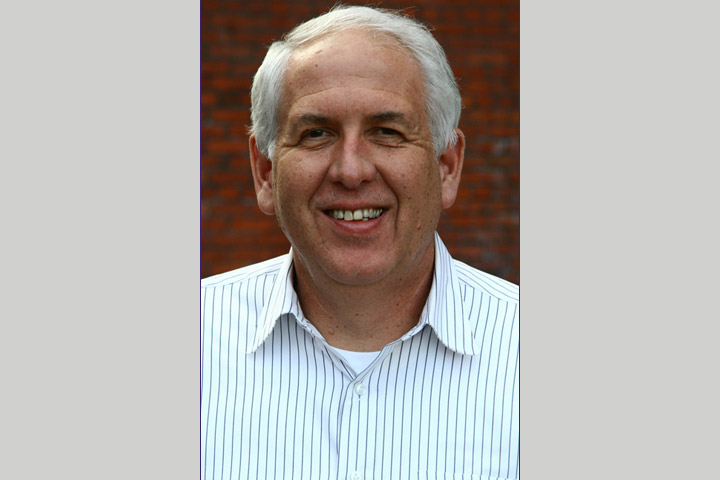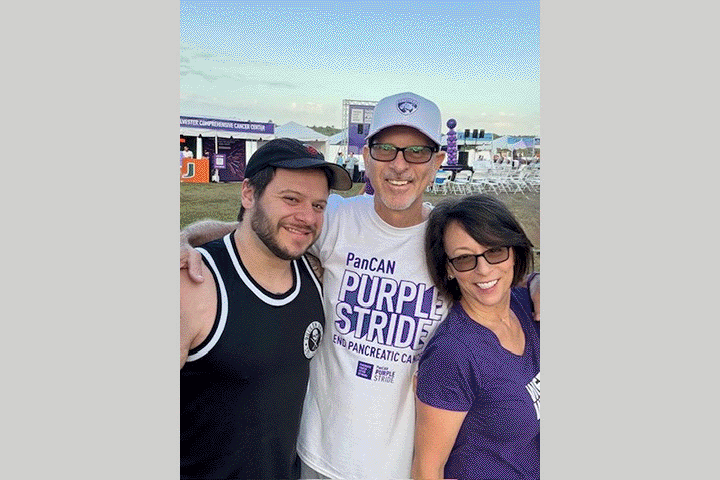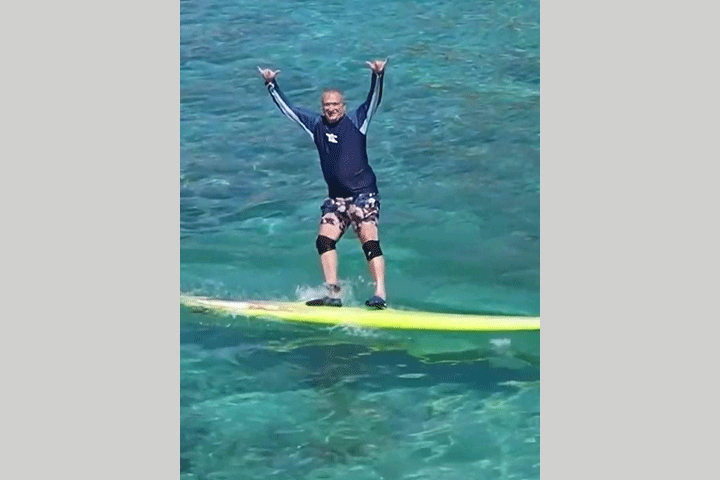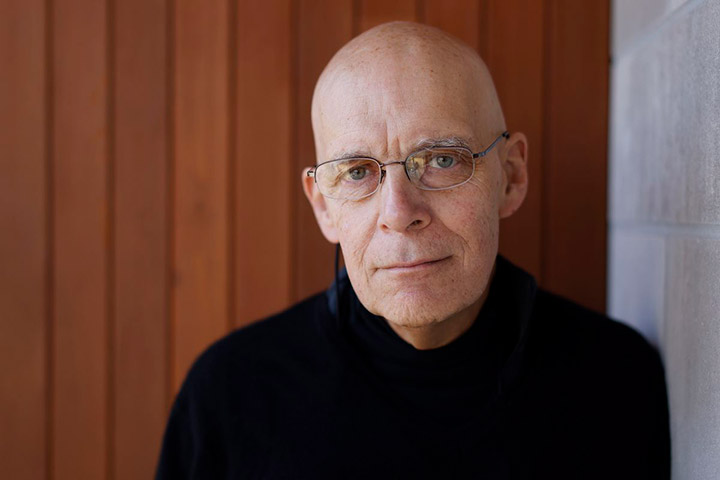Sometimes Life Hits You in the Head

As Steve Jobs of Apple fame once said, “Sometimes life hits you in the head with a brick. Don’t lose faith.”
After getting hit in the head with a pancreatic cancer brick in 2013, it’s all too easy to lose faith.
Learning only 5 percent of those diagnosed could expect to see five years, and being a numbers guy, I didn’t expect to make it. I didn’t expect to be there for any of my three daughters’ big days. (Two of them are now married.)
So other than receiving the standard course of care, a Whipple procedure, six weeks of daily radiation treatments with continuous 5-FU (fluorouracil) via a pump, followed by six Gemzar (gemcitabine) chemo doses, why am I now well into my sixth year? Much of this is a medical mystery for sure, but here are my hunches.
Finding the Tumor in the Nick of Time
Within two weeks, I went from living the normal life of a 59-year-old white male to having an upset stomach, turning yellow, the discovery of a one-inch pancreatic tumor sucked up next to my bile duct, and being a Whipple procedure candidate. Later my doctor told me had my bile duct not been blocked, forcing me to go to the ER, I likely would not have made it.
Getting a Whipple Procedure
I later learned, courtesy of WebMD and other sources, only one in five people can have a Whipple procedure. Without this surgery, my survival chances were slim if nonexistent. Or as my oncologist put it in nicer terms, palliative care.
Luck of the Draw
Amid being laid up in a hospital and feeling beyond awful, traveling to see some renowned surgeon somewhere was not an option for me. Or even getting a second opinion. Who knows why I was paired up with a local surgeon who I later learned drew people from other states to have him do their Whipple procedures. I drew an ace.
Ask Questions
Unlike many people, I question everything. Not in an obnoxious manner, I just need to know. I hear about people whose heads bob up and down like one of those bobblehead dogs when their doctor says to them, “we’re going to do thus, and so.” All this while not agreeing or worse, not understanding what the doctor said. I don’t know if it is fear about speaking up or just an overreliance on the practice of medicine—you assume the doctor knows what they’re doing. Beats me. But if I’m not sure about something my doctor tells me I ask questions until I do understand.
Do What the Doctor Says
After asking endless questions, and agreeing to a treatment plan, it is up to me to do what my doctor asked me to do. On occasion one of my doctors will let slip how frustrated they get when someone fails to do what they agreed to do. Beyond being super smart, doctors are people too. They care about us. But failing to do what they told me to do in no way endears me to them. I need them all in to help me. I get them all in by doing what they tell me.
Be Kind
Getting any cancer, especially pancreatic cancer, can lead to a victim mentality, or a “woe is me” attitude. Why the #@%! did this happen to me! While in the hospital for weeks at a time, first for my Whipple procedure and then for what seemed like endless complications from it, I felt so sorry for the many hardworking nurses who had just come from a bad interaction with someone in another room. Much like my doctors, I need the nurses and everyone else rooting for me. Doing the extra. Be kind.
Find an Advocate
During an outpatient antibiotic treatment for yet another raging post-op infection, a nurse told me, “Find someone to be your advocate. They’re out there.” I did. My surgeon’s physician assistant proved to be just that. She came alongside me and helped me in every way she could, often above and beyond her job. To this day I am thankful for her help and advocacy. Find an advocate.
Talk About It
No one can read my mind (or your mind for that matter). If I don’t talk about what’s happening to me, no one will understand. I need to talk about things like what it feels like to think you’re near the end, or people will just think I’m being surly. I can tell people what is going on inside my head or they will make up their version. Talk about it.
Reach Out to Others
It’s too easy to adopt a bunker mentality about what’s happening. Any cancer, most notably pancreatic cancer, can make the world seem rather small, like the walls are caving in. To help compensate for this, I have tried to reach out to others to let me know how important they are to me. How much I need them, because I do. Dealing with pancreatic cancer is a team sport. I need everyone on the field. Reaching out is just one way to do this.
Live in the Present
Too often I catch myself worrying about my upcoming six-month oncology visit. Even today, these things terrify me. Will the doctor come in and say, “I’m sorry but . . . .” Or will they say, “Your scans and blood work look great, how are you feeling?” Either way there is nothing I can do to change the reality of this. The best I can do is live in the present.
Nothing is easy about dealing with pancreatic cancer. One can proactively get on it or let things happen as they will. It’s your choice. But don’t lose faith.
William Ramshaw lives in the expansive Pacific Northwest. He is a six-year survivor of pancreatic cancer and has written a memoir, Gut Punched! Facing Pancreatic Cancer. He shared his treatment story in “Chicken Enchiladas and Pancreatic Cancer.”
Watch William tell his story in “I Can Really Do This.”






